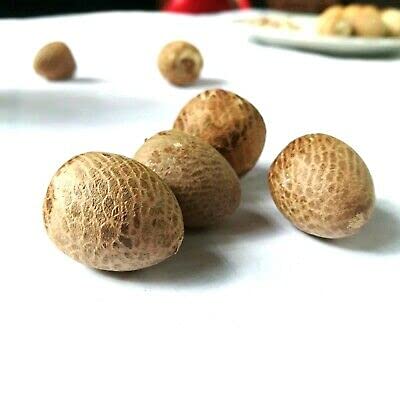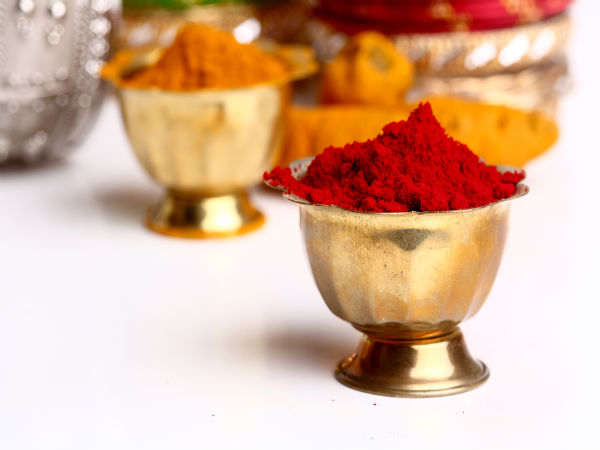What is Betel nut?
What is Betel nut?
Hinduism has a plethora of rituals and customs. Most of them can
provide us with a lot of benefits. During the pujas and other
ceremonies, we use several items. Supari is one such ingredient that
plays a pivotal role in Hindu rituals. Here, we will look into the origin,
meaning, and significance of Supari in Hinduism.
The origin or when people started to use Supari as part of religious ceremonies is unclear. However, it has been in use for quite some time. There are a few references to the usage of Supari in Hindu rituals in some ancient texts and Ayurvedic books. However, they do not provide any apparent description of the same.
Supari is also known as Betal or Areca Nut. Poogi Phal is the Sanskrit word of Supari, and Supari is its Hindi word. Betel nut is the seed of Areca Palm, and it is round as well as woody. Whenever we use Betel nut for our pujas, we have to use it in wholeness. We must not break it as it would reduce the benefit of using a Supari. There are mainly two types of Supari available. They are Chhaliya Supari and Puja Supari. Chhaliya Supari is round, and we can use it to worship Lord Ganesha. Devotees often use Puja Supari to offer their prayers to all the Gods and Goddesses.
Supari also plays a highly beneficial role in Ayurveda. It can also be helpful in salivation and improving digestion. Supari can aid in stimulating your appetite as well.
Significance of Betel nut in Hinduism: Supari or betel nut is a pure substance that can facilitate our connection with Divine entities. It is a symbol of loyalty and a strong bond, as well. We can place Supari along with Paan in Havan Kunda before we start a puja or Yagna. Here, we will look into some of the significances of Supari or Betel nut in Hinduism.
1. You can use Betel nut during your prayers, especially in Shiva Puja. After you offer Gangajaal, Panchamrita, clothes, and money to the deity, you can give Supari. You have to provide it along with Janeu and Cloves. You can use Supari for Phulaish Puja as well. Devotees conduct Phulaish Puja to find out whether their wishes would become fruitful.
2. We can use betel nut in a ritual while we are establishing a deity. It is ritualistic to chant mantras while performing the same. We can use Supari when we do not have an image of God or Goddess. Supari can act as the symbol of Brahman, Varunadev, Indradev, Yamadev, and other deities also. It can also act as a representation of different planets, including Mangal, Rahu, Ketu, Surya, etc.
3. We can use betel nut to depict human beings as well. While we are performing certain pujas or ceremonies, there is a need for some close relatives to be present. During their absence, we can always consider them as Supari. We can cover it with clothes and place it as a representation of the husband, wife, or parents. It is equal to their presence throughout their ritual.
4. We know that betel nut has a hardcover that we cannot break easily. When we offer Supari to the Gods and Goddesses, we try to remove the negative feelings present in our lives. It is a depiction of giving away our alter ego.
5. In most Hindu households, people offer Supari with Janeu, betel leaves, and cloves to their guests. In some parts of India, people provide it during auspicious occasions like weddings and festivals. It is a way of seeing off the guests and thanking them for visiting.
6. Betel nut helps us in invoking the blessings of Lord Ganesha. We can use Supari while conducting our prayers for Lord Ganesha. When we organize pujas for Lord Ganesha, it also helps in gaining the benefits from Goddess Lakshmi. We can cover the Supari with Mauli thread and place it on a betel leaf. We can then keep it along with Akshata rice grains while we have the prayers for Lord Ganesha. In some temples, we cannot take Supari as a Prasad. We have to put it in a water body. However, when we receive a Supari after worshipping Lord Ganesha, we can place it in our Puja rooms. We can use it as part of our daily prayers.
7. Supari or Betel nuts play an essential role in Sankalapas or visualizations. Devotees use it as a part of their Japas as well. We give it along with the Dakshina to the priests who have performed a ritual or ceremony. It is a way of thanking their service and loyalty.
8. Supari plays a significant role in Kalash Puja. With the accompaniment of the mantra and usage of Supari, Kalash Puja can provide us with positive benefits. Devotees perform it by chanting this mantra: Edam Phalam Mayaa Samyak Prakshipet Kalashe Yatah Teenayam Kalashah Samjak Phalwaantu Saravadaa.
These are some of the significances associated with using Supari in Hindu ceremonies and rituals. You
can use it as a representation of deities. You can also use Supari to invoke the blessings of Divine
entities. It can act as a factor to connect us with the realm of divinity and auspiciousness.


